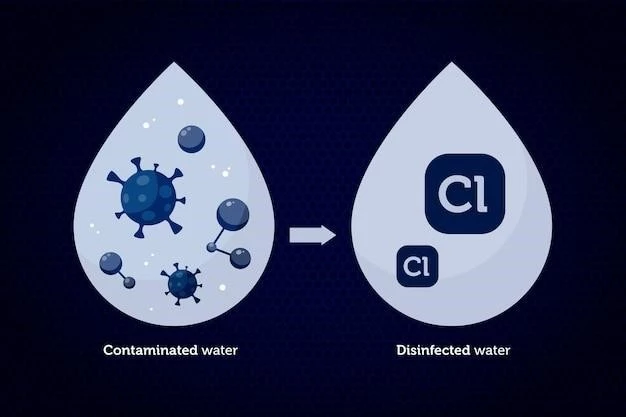Alpha-Methylcrotonyl-CoA Carboxylase Deficiency may present with poor feeding‚ vomiting‚ lethargy‚ seizures‚ and developmental delays.
Overview of Common Symptoms
Alpha-Methylcrotonyl-CoA Carboxylase Deficiency can manifest as poor feeding‚ vomiting‚ lethargy‚ seizures‚ and developmental delays. Individuals may experience metabolic crises with acidosis and hyperammonemia‚ which can be life-threatening. It is crucial to seek medical attention if any of these symptoms are present‚ as early diagnosis and management are key in improving outcomes.
Management of Alpha-Methylcrotonyl-CoA Carboxylase Deficiency focuses on dietary modifications‚ supplementation‚ and close medical monitoring. Consult a healthcare provider for personalized treatment plans.
Available Treatment Approaches
When addressing Alpha-Methylcrotonyl-CoA Carboxylase Deficiency‚ dietary modifications are crucial to avoid amino acid breakdown. Supplementation with L-carnitine and glycine can help manage symptoms. Regular medical monitoring is essential to track progress and adjust treatment as needed. Collaboration with metabolic specialists can provide comprehensive care tailored to individual needs. Always follow your healthcare provider’s recommendations for optimal management of the condition.
Alpha-Methylcrotonyl-CoA Carboxylase Deficiency is caused by mutations in the MCCC1 or MCCC2 genes‚ impacting enzyme function in the breakdown of amino acids. Genetic testing can help confirm the diagnosis and assess the risk of passing on the condition.
Understanding the Genetic Basis
Alpha-Methylcrotonyl-CoA Carboxylase Deficiency results from genetic mutations affecting the enzyme function necessary for processing amino acids. These mutations are typically inherited in an autosomal recessive manner. Genetic counseling can help individuals and families understand the inheritance pattern and make informed decisions. Stay informed about genetic developments and seek support from healthcare providers to navigate the genetic aspects of the condition.
The prognosis of Alpha-Methylcrotonyl-CoA Carboxylase Deficiency varies depending on the severity of symptoms and early intervention. Regular medical care and adherence to treatment can help manage the condition effectively. Consult with healthcare providers for personalized prognosis assessment and ongoing care.
Evaluating Prognosis
Assessing the prognosis of Alpha-Methylcrotonyl-CoA Carboxylase Deficiency involves monitoring symptoms‚ metabolic control‚ and response to treatment. Early detection and intervention are crucial for better outcomes. Long-term management focuses on preventing metabolic crises and optimizing overall health. Stay proactive in healthcare management‚ follow treatment plans diligently‚ and communicate openly with healthcare providers to ensure the best possible prognosis for individuals with this condition.
Diagnosis of Alpha-Methylcrotonyl-CoA Carboxylase Deficiency involves genetic testing‚ blood/urine analysis‚ and metabolic assessments. Consult healthcare professionals for accurate diagnosis and personalized care plans.
Diagnostic Procedures
Diagnosing Alpha-Methylcrotonyl-CoA Carboxylase Deficiency involves genetic testing to identify mutations in the MCCC1 or MCCC2 genes. Additionally‚ blood and urine tests can reveal metabolic abnormalities specific to the condition. Medical professionals may conduct imaging studies and metabolic assessments to aid in diagnosis. Early detection is pivotal for ensuring timely intervention and management. Seek guidance from metabolic specialists for comprehensive evaluation and accurate diagnosis of this genetic disorder.
Management of Alpha-Methylcrotonyl-CoA Carboxylase Deficiency involves a specialized diet low in specific amino acids. Collaborate with a dietitian to create a personalized meal plan and adhere to dietary recommendations for optimal health outcomes.
Dietary Guidelines and Restrictions
Individuals with Alpha-Methylcrotonyl-CoA Carboxylase Deficiency must follow a low-protein diet to manage the condition. This includes limiting foods rich in leucine‚ isoleucine‚ and valine. Regular monitoring of protein intake is essential‚ and supplementation with specific amino acids may be necessary. Consult with a metabolic dietitian to ensure proper nutrient balance and support overall health. Adhering to dietary guidelines is vital for symptom management and overall well-being in individuals with this metabolic disorder.
Stay informed about the latest research on Alpha-Methylcrotonyl-CoA Carboxylase Deficiency for potential breakthroughs in treatment and management strategies. Consult healthcare providers for updates.
Recent Discoveries and Advancements
Recent research on Alpha-Methylcrotonyl-CoA Carboxylase Deficiency has focused on exploring new treatment options‚ enhancing diagnostic techniques‚ and understanding the underlying mechanisms of the condition. Advances in gene therapy and targeted therapies offer promising avenues for future interventions. Staying updated on the latest scientific developments can provide insights into potential improvements in managing the disorder. Reach out to healthcare professionals and research institutions for the most current information on advancements in the field.

Find community groups and online resources to connect with others facing Alpha-Methylcrotonyl-CoA Carboxylase Deficiency. Seek emotional support‚ share experiences‚ and access valuable information to navigate the challenges of living with this condition.
Available Support Networks
Connecting with support organizations like the Genetic and Rare Diseases Information Center and RareConnect can offer valuable resources for individuals and families affected by Alpha-Methylcrotonyl-CoA Carboxylase Deficiency. These platforms provide access to educational materials‚ online communities‚ and opportunities to engage with experts in the field. Joining these networks can help in finding emotional support‚ sharing experiences‚ and staying informed about the latest developments in research and treatment options for this rare genetic disorder.
